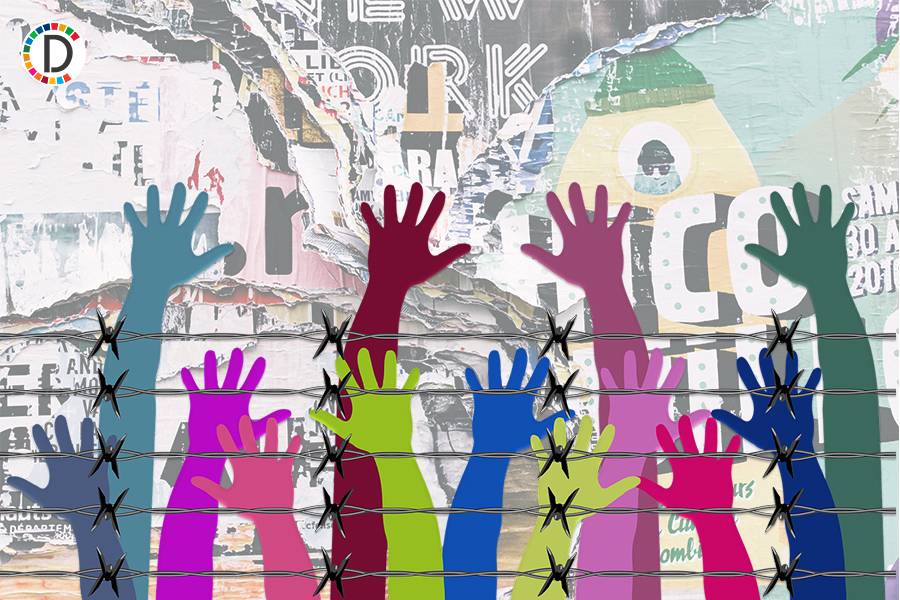North Macedonia votes in elections crucial for EU accession
North Macedonia voted on Wednesday in parliamentary and presidential elections in which the right-wing opposition is expected to gain ground against a ruling party that has failed to make progress in talks to join the EU and to curb corruption.

North Macedonia voted on Wednesday in parliamentary and presidential elections in which the right-wing opposition is expected to gain ground against a ruling party that has failed to make progress in talks to join the EU and to curb corruption. No opinion polls have been published ahead of the vote, but a stronger-than-expected showing from the opposition VMRO-DPMNE party in the first round of the presidential election last month suggests discontent with the ruling Social Democrats (SDSM).
"This (vote) will be a big punishment by the citizens of those retrograde, defensive politicians," Hristijan Mickoski, the head of VMRO-DPMNE, said after voting at a school in Skopje. Voters are frustrated with the sluggish advance of North Macedonia's bid to join the EU, which was greeted with optimism in 2005 but has since become an emblem of the small Balkan country's lost promise. Enduring corruption and slow development have also soured voters against the ruling party.
"I am expecting changes for the better ... Everything is disastrous, especially corruption," said 45-year-old administrative clerk Igor Lazarev after voting. The centre of the capital Skopje is dotted with unfinished or empty concrete and marble buildings erected during VMRO-DPMNE's last tenure, which ended when SDSM took power in 2017. A concert hall that burned down months ago awaits renovation.
The opposition blames the government for such problems. "The people will have the final say on which direction the country takes. Will it be the country that joins the EU by 2030... or will we return to ... the past?" SDSM leader Dimitar Kovacevski told reporters after casting his ballot in Skopje.
Wednesday's vote includes a run-off for the more ceremonial presidency as well as for a new parliament. Polling stations will close at 7 p.m.(1700 GMT) and the election commission is expected to start announcing results later in the evening. FRICTIONS
In 2001 NATO pulled North Macedonia back from the brink of civil war during an ethnic Albanian insurgency and promised faster integration into the EU and NATO. Albanians account for about a quarter of country's population of 1.83 million. North Macedonia's lack of EU progress has partly been due to frictions with neighbouring Greece and Bulgaria, both EU member states, but also to a failure to press reforms of the economy and the judiciary. The country joined NATO in 2020.
Analysts say one of the two main parties will probably have to form a coalition with smaller partners to secure a parliamentary majority. Two ethnic Albanian parties - the co-ruling Democratic Union for Integration (DUI) and opposition bloc VLEN/VREDI - are expected to play a key role.
Arben Taravari who heads the VLEN/VREDI alliance said an agreement with Bulgaria on recognising North Macedonia's ethnic Bulgarian minority in the constitution would be a precondition for his party joining the new government. "The first and main priority is North Macedonia's EU path," he told reporters.
In the predominantly ethnic Albanian town of Tetovo, which was at the heart of the 2001 insurgency, some voters said they wanted the new government to tackle graft with foreign help. "If you leave locals to do it, they will just pass corruption from one to another," said Sem Beqiri, 27, an ethnic Albanian retail worker. (Additional reporting by Fatos Bytyci in Tetovo; Editing by Alexandra Hudson and Gareth Jones)
(This story has not been edited by Devdiscourse staff and is auto-generated from a syndicated feed.)
ALSO READ
AI Express flight cancellations: Opposition parties demand Aviation Ministry intervention
Shah Alleges Opposition Parties Deny Hyderabad Liberation Day, Aim to Govern on Religious Texts
PM Modi warns of opposition parties' merger plot to block BJP's return in Jharkhand rally
Moldovan parliament votes to hold referendum on EU membership on Oct 20










